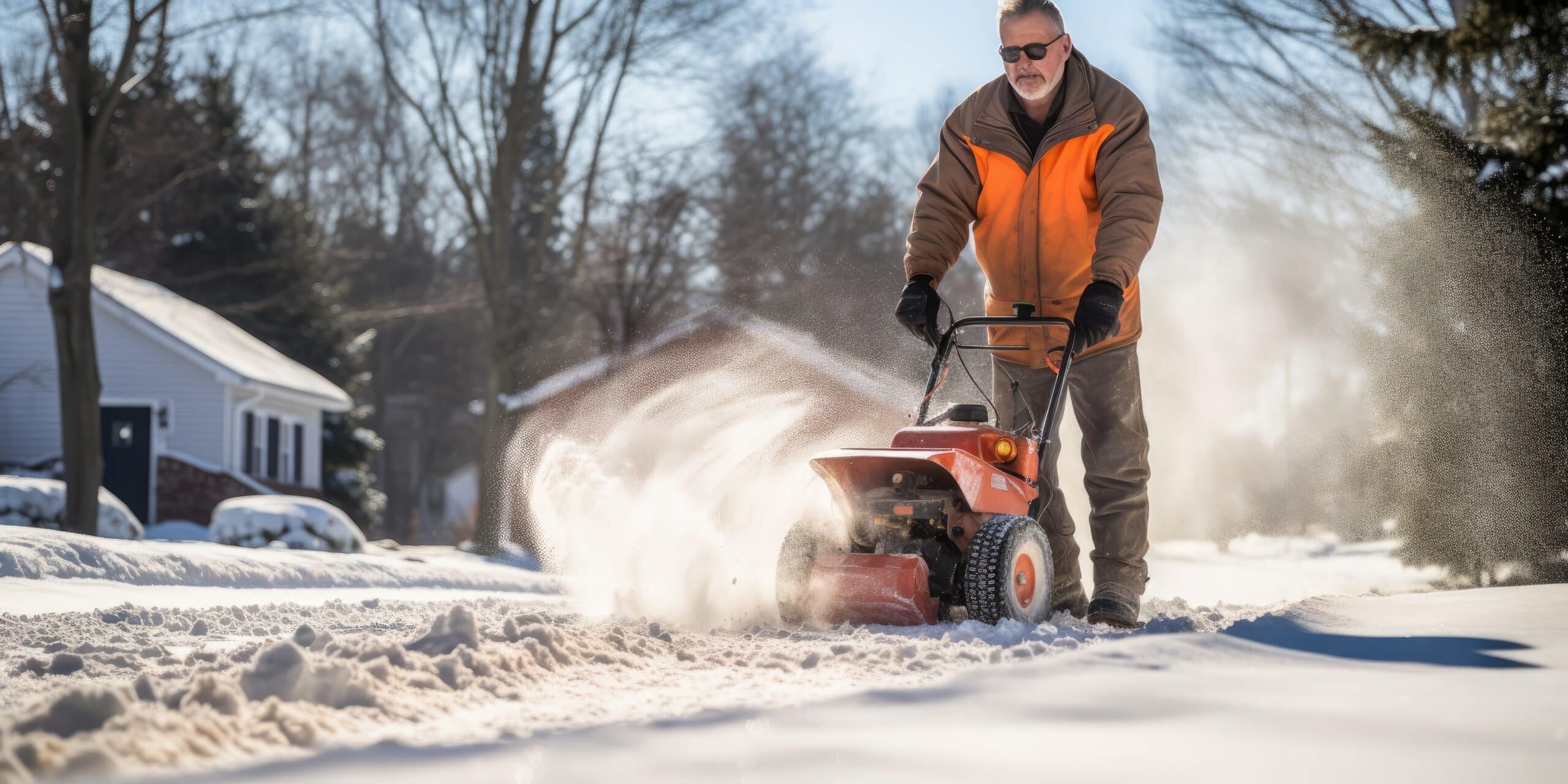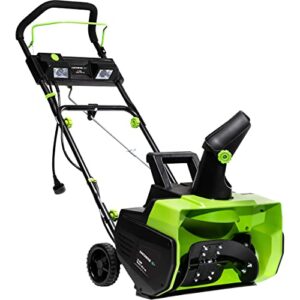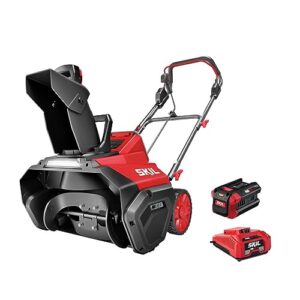Are Battery Snow Blowers Comparable to Gas Models?
Key Takeaways
- Battery snow blowers are lightweight, easy to maneuver, and produce less noise compared to gas models. They do not require fuel, making them more environmentally friendly. Battery snow blowers also require minimal maintenance.
- Gas snow blowers have more power, wider clearing widths, and greater clearing depths compared to battery snow blowers. They are suitable for larger driveways and heavier snowfall.
- Battery snow blowers are simpler to operate and have lower running costs compared to gas snow blowers. Gas snow blowers require regular engine maintenance and produce more noise and pollution.
Battery snow blowers and gas snow blowers are both popular choices for clearing snow, but are they truly comparable in terms of performance and functionality? Let’s delve into the details to determine the key differences and similarities between these two types of snow blowers.
Battery Snow Blowers
Battery-powered snow blowers are a type of electric snow blower that offers a range of benefits. They are lightweight, easy to maneuver, and produce less noise compared to gas models. These machines do not require fuel, making them more environmentally friendly. Additionally, battery snow blowers are simpler to operate and require minimal maintenance.
However, there are some limitations to consider. Battery snow blowers generally have less power compared to their gas counterparts. They have smaller clearing widths and depths, making them better suited for smaller driveways and lighter snowfall. Battery snow blowers may struggle with heavy or wet snow, which can impact their overall performance.
Gas Snow Blowers
Gas snow blowers, on the other hand, are known for their power and capability to handle larger amounts of snow. They come in single-, two-, or three-stage options, offering different levels of clearing efficiency. Gas snow blowers have wider clearing widths and greater clearing depths, allowing them to tackle heavier snowfall and larger areas more effectively.
While gas snow blowers provide superior performance, they do come with some drawbacks. These machines require regular engine maintenance, including oil changes and spark plug replacements. They are also louder and produce pollution, which can be a concern for those seeking a quieter and more environmentally friendly option.
Comparison
When comparing battery snow blowers to gas models, several factors come into play.
- Power: Gas snow blowers are generally more powerful, with engines measured in cc or hp, while battery snow blowers are measured in amps.
- Clearing Width and Depth: Gas snow blowers have wider clearing widths and greater depths compared to battery snow blowers.
- Maintenance: Battery snow blowers require very little maintenance, while gas snow blowers need regular engine maintenance.
- Operation: Battery snow blowers are simpler to operate, while gas snow blowers often come with extra comfort features like heated handles and joystick-controlled chutes.
- Noise and Pollution: Battery snow blowers are quieter and produce no direct pollution, while gas snow blowers are louder and emit pollution.
- Cost: Battery snow blowers tend to be cheaper compared to gas models.
- Running Costs: Battery snow blowers have fewer running costs, while gas snow blowers require fuel and materials for maintenance.
Conclusion
While battery snow blowers offer convenience, portability, and a greener alternative, they are not as powerful as gas snow blowers. Gas models excel in terms of clearing capacity, making them more suitable for larger driveways and heavier snowfall. The choice between battery and gas snow blowers ultimately depends on the specific needs and preferences of the user.
Related Websites:
FAQs:
Q: What are the advantages of using battery snow blowers?
Battery snow blowers are eco-friendly, produce reduced noise levels, and offer convenient features like easy start-up and maintenance.
Q: How do battery snow blowers compare to gas models in terms of power and performance?
Battery snow blowers have limitations in clearing capacity and run time compared to gas models. However, advancements in technology have improved their power output.
Q: What should I consider when choosing a battery snow blower?
When choosing a battery snow blower, consider battery capacity and voltage, the need for spare batteries and their cost, and the impact of extreme cold weather on battery performance.
Q: What are the advantages of using gas snow blowers?
Gas snow blowers excel in handling heavy-duty tasks and large areas. They also offer the advantage of unlimited runtime and availability of gas refueling stations.
Q: What are the maintenance requirements and considerations for gas snow blowers?
Gas snow blowers require regular maintenance. They produce more noise and emissions compared to battery models. Proper fuel storage and safety precautions are also necessary.






